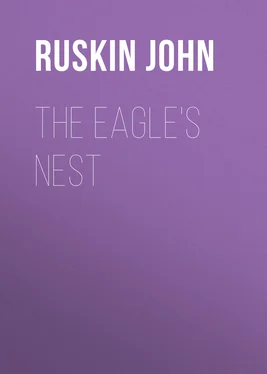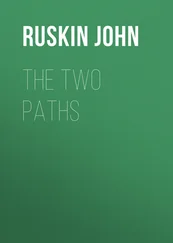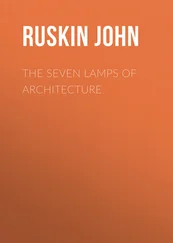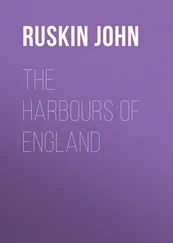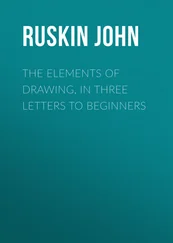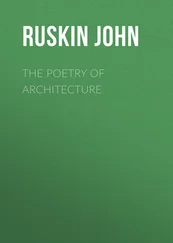John Ruskin - The Eagle's Nest
Здесь есть возможность читать онлайн «John Ruskin - The Eagle's Nest» — ознакомительный отрывок электронной книги совершенно бесплатно, а после прочтения отрывка купить полную версию. В некоторых случаях можно слушать аудио, скачать через торрент в формате fb2 и присутствует краткое содержание. Издательство: Иностранный паблик, Жанр: foreign_antique, foreign_home, literature_19, visual_arts, на английском языке. Описание произведения, (предисловие) а так же отзывы посетителей доступны на портале библиотеки ЛибКат.
- Название:The Eagle's Nest
- Автор:
- Издательство:Иностранный паблик
- Жанр:
- Год:неизвестен
- ISBN:нет данных
- Рейтинг книги:4 / 5. Голосов: 1
-
Избранное:Добавить в избранное
- Отзывы:
-
Ваша оценка:
- 80
- 1
- 2
- 3
- 4
- 5
The Eagle's Nest: краткое содержание, описание и аннотация
Предлагаем к чтению аннотацию, описание, краткое содержание или предисловие (зависит от того, что написал сам автор книги «The Eagle's Nest»). Если вы не нашли необходимую информацию о книге — напишите в комментариях, мы постараемся отыскать её.
The Eagle's Nest — читать онлайн ознакомительный отрывок
Ниже представлен текст книги, разбитый по страницам. Система сохранения места последней прочитанной страницы, позволяет с удобством читать онлайн бесплатно книгу «The Eagle's Nest», без необходимости каждый раз заново искать на чём Вы остановились. Поставьте закладку, и сможете в любой момент перейти на страницу, на которой закончили чтение.
Интервал:
Закладка:
35. Yes, believe me, in spite of our political liberality, and poetical philanthropy; in spite of our almshouses, hospitals, and Sunday-schools; in spite of our missionary endeavours to preach abroad what we cannot get believed at home; and in spite of our wars against slavery, indemnified by the presentation of ingenious bills,—we shall be remembered in history as the most cruel, and therefore the most unwise, generation of men that ever yet troubled the earth:—the most cruel in proportion to their sensibility,—the most unwise in proportion to their science. No people, understanding pain, ever inflicted so much: no people, understanding facts, ever acted on them so little. You execrate the name of Eccelin of Padua, because he slew two thousand innocent persons to maintain his power; and Dante cries out against Pisa that she should be sunk in the sea, because, in revenge for treachery, she put to death, by the slow pangs of starvation, not the traitor only, but his children. But we men of London, we of the modern Pisa, slew, a little while since, five hundred thousand men instead of two thousand—(I speak in official terms, and know my numbers)—these we slew, all guiltless; and these we slew, not for defence, nor for revenge, but most literally in cold blood; and these we slew, fathers and children together, by slow starvation—simply because, while we contentedly kill our own children in competition for places in the Civil Service, we never ask, when once they have got the places, whether the Civil Service is done.
36. That was our missionary work in Orissa, some three or four years ago;—our Christian miracle of the five loaves, assisted as we are in its performance, by steam-engines for the threshing of the corn, and by railroads for carrying it, and by proposals from English noblemen to cut down all the trees in England, for better growing it. That, I repeat, is what we did, a year or two ago; what are we doing now? Have any of you chanced to hear of the famine in Persia? Here, with due science, we arrange the roses in our botanic garden, thoughtless of the country of the rose. With due art of horticulture, we prepare for our harvest of peaches;—it might perhaps seriously alarm us to hear, next autumn, of a coming famine of peaches. But the famine of all things, in the country of the peach—do you know of it, care for it:—quaint famine that it is, in the fruitfullest, fairest, richest of the estates of earth; from which the Magi brought their treasures to the feet of Christ?
How much of your time, scientific faculty, popular literature, has been given, since this year began, to ascertain what England can do for the great countries under her command, or for the nations that look to her for help; and how much to discuss the chances of a single impostor’s getting a few thousands a year?
Gentlemen, if your literature, popular and other; or your art, popular and other; or your science, popular and other, is to be eagle-eyed, remember that question I to-day solemnly put to you—will you hawk at game or carrion? Shall it be only said of the thoughts of the heart of England—“Wheresoever the carcase is, thither shall the eagles be gathered together”?
LECTURE III.
THE RELATION OF WISE ART TO WISE SCIENCE
37. Our task to-day is to examine the relation between art and science, each governed by sophia, and becoming capable, therefore, of consistent and definable relation to each other. Between foolish art and foolish science, there may indeed be all manner of reciprocal mischievous influence; but between wise art and wise science there is essential relation, for each other’s help and dignity.
You observe, I hope, that I always use the term ‘science,’ merely as the equivalent of ‘knowledge.’ I take the Latin word, rather than the English, to mark that it is knowledge of constant things, not merely of passing events: but you had better lose even that distinction, and receive the word “scientia” as merely the equivalent of our English “knowledge,” than fall into the opposite error of supposing that science means systematization or discovery. It is not the arrangement of new systems, nor the discovery of new facts, which constitutes a man of science; but the submission to an eternal system; and the proper grasp of facts already known.
38. And, at first, to-day, I use the word “art” only of that in which it is my special office to instruct you; graphic imitation; or, as it is commonly called, Fine art. Of course, the arts of construction,—building, carpentering, and the like, are directly dependent on many sciences, but in a manner which needs no discussion, so that we may put that part of the business out of our way. I mean by art, to-day, only imitative art; and by science, to-day, not the knowledge of general laws, but of existent facts. I do not mean by science, for instance, the knowledge that triangles with equal bases and between parallels, are equal, but the knowledge that the stars in Cassiopeia are in the form of a W.
Now, accepting the terms ‘science’ and ‘art’ under these limitations, wise art is only the reflex or shadow of wise science. Whatever it is really desirable and honourable to know, it is also desirable and honourable to know as completely and as long as possible; therefore, to present, or re-present, in the most constant manner; and to bring again and again, not only within the thoughts, but before the eyes; describing it, not with vague words, but distinct lines, and true colours, so as to approach always as nearly as may be to the likeness of the thing itself.
39. Can anything be more simple, more evidently or indisputably natural and right, than such connection of the two powers? That you should desire to know what you ought; what is worthy of your nature, and helpful to your life: to know that;—nothing less,—nothing more; and to keep record and definition of such knowledge near you, in the most vivid and explanatory form?
Nothing, surely, can be more simple than this; yet the sum of art judgment and of art practice is in this. You are to recognize, or know, beautiful and noble things—notable, notabilia, or nobilia; and then you are to give the best possible account of them you can, either for the sake of others, or for the sake of your own forgetful or apathetic self, in the future.
Now as I gave you and asked you to remember without failing, an aphorism which embraced the law of wise knowledge, so, to-day, I will ask you to remember, without fail, one, which absolutely defines the relation of wise art to it. I have, already, quoted our to-day’s aphorism to you, at the end of my fourth lecture on sculpture. Read the few sentences at the end of that lecture now, down to
That is Shakspeare’s judgment of his own art. And by strange coincidence, he has put the words into the mouth of the hero whose shadow, or semblance in marble, is admittedly the most ideal and heroic we possess, of man; yet, I need not ask you, whether of the two, if it were granted you to see the statue by Phidias, or the hero Theseus himself, you would choose rather to see the carved stone, or the living King. Do you recollect how Shakspeare’s Theseus concludes his sentence, spoken of the poor tradesmen’s kindly offered art, in the “Midsummer Night’s Dream”?
“The best in this kind are but shadows: and the worst are no worse, if imagination amend them.”
It will not burden your memories painfully, I hope, though it may not advance you materially in the class list, if you will learn this entire sentence by heart, being, as it is, a faultless and complete epitome of the laws of mimetic art.
Читать дальшеИнтервал:
Закладка:
Похожие книги на «The Eagle's Nest»
Представляем Вашему вниманию похожие книги на «The Eagle's Nest» списком для выбора. Мы отобрали схожую по названию и смыслу литературу в надежде предоставить читателям больше вариантов отыскать новые, интересные, ещё непрочитанные произведения.
Обсуждение, отзывы о книге «The Eagle's Nest» и просто собственные мнения читателей. Оставьте ваши комментарии, напишите, что Вы думаете о произведении, его смысле или главных героях. Укажите что конкретно понравилось, а что нет, и почему Вы так считаете.
